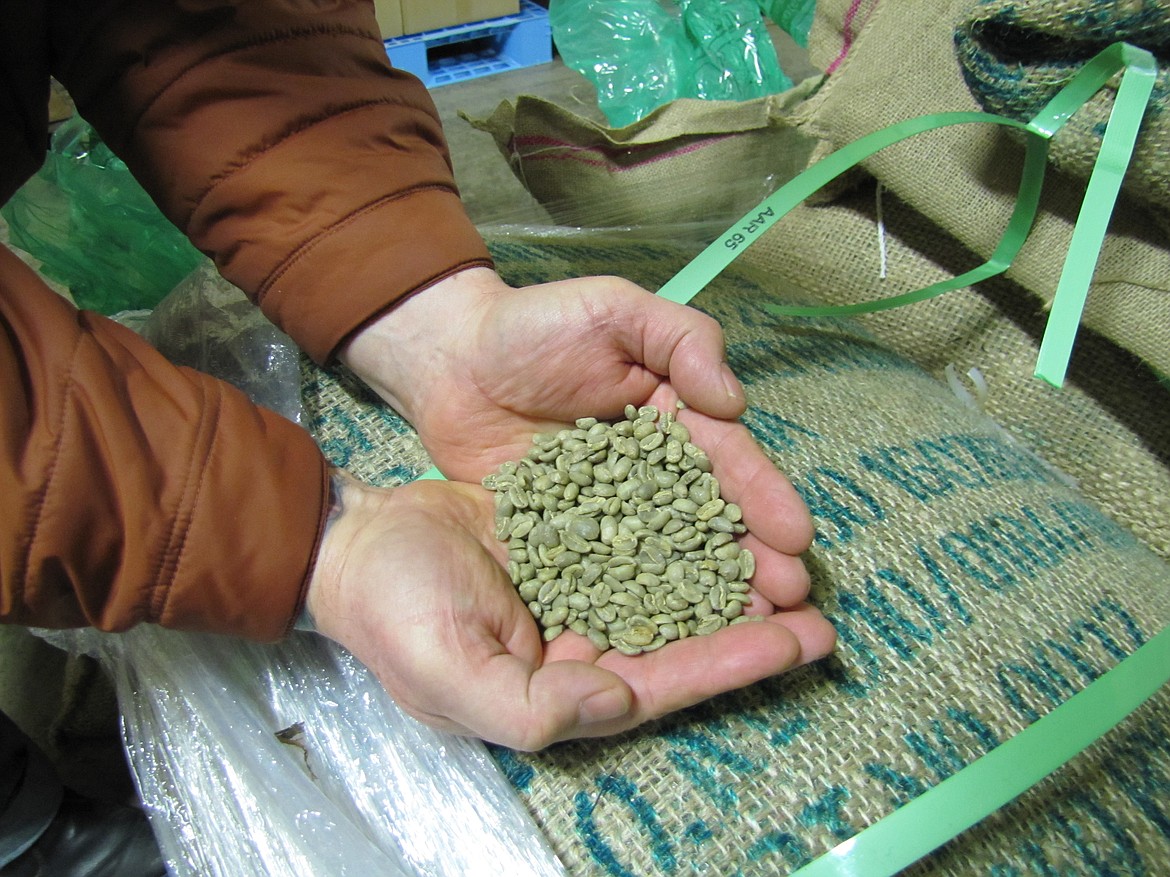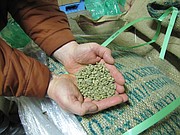Green growth
Terry Patano is doing his part to save the Earth—one coffee bean at a time.
Patano, owner of DOMA Coffee Roasting Co. in Post Falls, is recognized locally for going the extra mile to advocate clean business practices that are gentler on the environment. And he’s not alone.
In these global-conscious times, terms like “organic,” “self-sufficiency,” “recycle,” and “eco-friendly” are no longer mere buzzwords—they’re an increasingly popular way of doing business.
According to Waste Management of Idaho, a regional disposal and recycling firm that collects commercial recyclables in Kootenai County, more businesses are taking advantage of recycling opportunities.
“Businesses continue to be committed to recycling, especially when there’s an avenue to reduce costs and help the bottom line,” says WM district manager Steve Roberge. “For our customers, the bulk of the savings is through the reduction of landfill expenses. That’s the win-win.”
On many fronts, DOMA does its part to minimize its environmental impact, says Patano, who runs the business with his wife, Rebecca. They follow a comprehensive recycling plan, use a highly efficient roaster, sell coffee in “clean” packaging and cut back on energy costs with LED lighting.
DOMA’s gas-operated coffee roaster uses 80 percent less fuel than a conventional roaster while producing high quality coffee that has become a staple for many local restaurants and coffee shops.
According to its website, the Loring Smart Roast uses a single’ burner design that roasts coffee beans while also incinerating smoke, eliminating the need for an afterburner. The result is consistent roasts and lower emissions while using far less fuel to operate.
The roastery also uses earth-friendly packaging known as Biorte that is made mostly from renewable plant-based resources that compost quickly.
And nothing at DOMA that can be salvaged ends up in the landfill, Patano says.
“We recycle everything,” he says. “We have bins set up for glass, aluminum, metal, plastic and paper and we make a trip to the (solid waste) transfer station every week.”
Patano hopes his practices will catch on. “Wouldn’t it be great if we were a model business for the state of Idaho for recycling and being energy efficient and sustainable?”
Going greener
Jill McFarlane, community outreach coordinator for Kootenai Environmental Alliance, says the nonprofit agency promotes recycling strategies for businesses of all sizes, a growing number of which want to do more to be earth-friendly.
“Many will recycle cardboard, however a growing number of business owners want to recycle plastics, aluminum and other materials that often aren’t recycled because they are unaware of how to go about it,” she says.
That’s where Waste Management comes in.
“They provide single-stream recycling in the Spokane/Coeur d’Alene area for businesses and explain that it will usually even save participants money,” she says.
Grassroots approach
Another local business widely recognized for its focus on green practices (literally) is Pilgrim’s Market on North Fourth Street in Coeur d’Alene.
Offering natural and organic foods, educational programs and eco-friendly events, Pilgrim’s is committed to reducing waste and growing its own food to reduce transportation costs, thereby minimizing its carbon footprint, says Edward J. Brown, Pilgrim’s executive vice president.
“We have a huge greenhouse program in the backyard that we’re putting up that should be functional in 2018,” he says.
Food grown on-site will be used in the store’s deli and produce departments, and the 16,500-square-foot greenhouse will also serve as an educational platform to highlight the benefits of organic urban farming, Brown says.
There’s virtually no food waste at Pilgrim’s as the business operates a vast compost system, turning vegetable waste into fertilizer for its greenhouse. “It (food waste) is actually more valuable to us to use as compost than throwing it away,” he says.
Young Bennett, facilities manager at Pilgrim’s, says the business composts up to 700 pounds of food waste a week to nurture its organic vegetables. Besides leftover scraps, damaged and spoiled produce is also composted.
And Pilgrim’s uses an efficient water valve system for its vegetable sprayers, sink faucets and even in the restrooms. “Essentially, it produces a stronger stream, but reduces the amount of water used,” Bennett says.
Pilgrim’s also keeps the cold where it belongs—inside the coolers. Rather than allowing the cold air to escape into the open air, Pilgrim’s uses vinyl strip curtains on its coolers to keep cold where it belongs—inside the coolers, saving on energy costs.
“We feel good about doing our part to set an example and do what’s right to minimize our impact on the environment,” Brown says.



